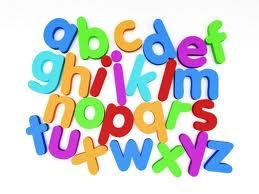A sk questions while reading together. "What do you think will happen next?"
B uy books as gifts!
C hat about what is happening in the book and how it relates to everyday life.
D rop everything and read. Set aside 20 minutes a day during which the whole family reads.
E xamine book illustrations in detail. Select books that have large, bright pictures.
Find books that interest your child. Make suggestions, but don't turn reading into work.
G ive hints when your child gets stuck on a word.
H ave fun. Smile and enjoy the story. Read with a slow, relaxed voice and be expressive.
I nvite your child to the bookstore. Take time to lounge in the chairs and browse the books.
J oin in your child's reading successes. Celebrate every small step with sincere praise.
K ids love to receive mail. Send your child a magazine subscription in an area that interests him or her.
L earn to read with, and not just to, your child daily. Read aloud, share ideas, and answer questions.
M odel reading. Share with your child, whether you're reading for information or for entertainment.
N ever force your child to read. If you're both too tired or discouraged to read, take a break.
O ffer your child a variety of reading materials, such as books, magazines, cereal boxes, comics, and newspapers.
P redict story elements, draw conclusions, and retell the story with your child.
Q uiz your child at the end of a story. Informally, of course!
R eread books to familiarize your child with words and to build self-confidence.
S ing songs, recite poetry, and do fingerplays to help develop language and listening skills.
T ry to help your child understand that it's okay to make mistakes.
U nderstand that reading is developmental and that it takes time and practice to become fluent.
V isit your local library on a regular basis. Sign your child up for his or her own library card.
W elcome wordless picture books into your collections. They generate conversation and allow the nonreader to create his or her own stories.
X hibit" patience when your child is selecting books. Your support is empowering.
Y ou are the most important person in helping your child develop a lifelong love of reading.
Z ealous readers are the result of supportive and nurturing role models.



